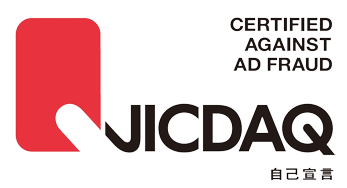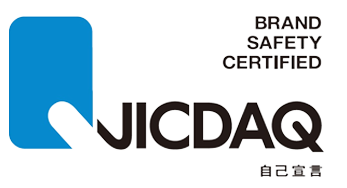Competitor Brand Bidding: An (Un)Ethical Ad War

Picking that route is especially effective for brands that have not established an online presence or have run out of business.
However, it’s a process that’ll put you through a lot of trial and error. While it’s a great marketing strategy that makes sense, a considerable number of businesses are already doing it.
Keep reading to learn about competitor brand bidding, its pros and cons, and how you can do it.
What Is Competitor Brand Bidding?
Competitor PPC brand bidding is a marketing strategy that numerous businesses practice when running Google Ads. To put it simply, they add another brand’s name as a keyword they want their ads to rank for. That allows them to appear in a search related to their competitors.
The below example shows what it looks like.

Even though you’ve searched for the Trello project management tool, you’ll see their competitors currently running ads that are ranking for this particular keyword.
It is an entirely legal process as long as you stick to the rules we’ll mention later on. As long as you win your competitor’s brand name keyword, your ads will be displayed whenever someone searches for them.
Why Bid on Competitor's Brand?
Ranking high with search ads for your competitor brands is a great way to take a piece of the market share. Whenever someone is searching for your competitor, you get the benefit of getting exposure to the target audience that might be interested in your product.
That way, you slowly get more people to know about your brand and start using it over time.
Additionally, brands use this approach for businesses that are closing down. So whenever someone remembers a company and looks it up in a search engine, they’ll end up with your brand at the top of search engines results.
Last but not least, brands engage in brand name bidding wars to get better exposure to a range of potential customers. Often, bidding on competitors’ brand names ends up in retaliation that keeps going for months, if not years.
Benefits of Competitor Brand Bidding
Ranking for other brands’ keywords brings plenty of valuable benefits. The most notable are:
- Piggyback Rides - Every industry has its giants that not only rank high search results but have a massive pool of customers. They are the perfect targets for competitor bidding campaigns that’ll allow you to rank for competitor keywords. That way, you get to piggyback on the massive search volume that some brands have.
- Quality Attention - Ranking for competitors’ brand terms allows you to advertise your services to your potential customers automatically. Advertising to the right target audience can bring better conversion rates as the audience is already qualified to use your product. That automatically means they might be interested in it, primarily if the competitor doesn’t deliver.
- Brand Awareness - You don’t need all the visitors to start using your product or service. It’s enough just for them to become aware that your brand exists. Brand exposure is one of the most significant benefits of competitor bidding. It’s one of the easiest ways of getting your name out there.
- Competition Isn’t As Tough - Staying creative with your marketing efforts is a great way to stay ahead of the competition. Competitor brand bidding is an excellent way to keep your competitors on their guard while you slowly thrive by ranking their brand keywords.
Downsides of Competitor Brand Bidding
Aside from several benefits, there are some downsides to consider. These can make the whole process more challenging.
- Legalities - Brand names are no joke. Making a couple of bad decisions can quickly result in a lawsuit. That’s why it’s essential to play by the rules and collaborate with competitors if they get in touch regarding your brand bidding.
- Bidding War - Bidding on competitor brand names can quickly turn into a war. Before you start competitor bidding, be aware that retaliation will result in other brands ranking for your brand name.
- Quality Score and CTR Will Be Poor - Keep in mind that people searching for another brand will most likely not click on your Google Ad. While CTR results will not be great, you’ll still get a lot of exposure for your brand as you keep appearing in search engine results.
- It Can Get Pricey - You won’t be the only one who’s using this advertising tactic. Once the bidding wars begin, you’ll find numerous brands doing the same, which will lead to a price increase. As you continue battling, your marketing budget will take a bigger hit.
How to Get Started on Competitor Brand Bidding

You’ll have to consider several things at the beginning of your competitor brand bidding. Let’s explore the crucial ones.
- Run Your Own Branded Campaign First - Start running campaigns for your brand to get the perfect idea of how bidding works. It’s also a great way to compare the results with future competitor brand name bidding strategies.
- Choose Your Competitor Wisely - Take your time with finding competitors that match your strategy requirements. You need brand names that rank well and receive a lot of traffic through ranking.
- Go Heavy On Your Perks & Differences - Create an ad design that tells all the essentials about your brand and the key features that make your product, platform, or service special.
- Don’t Aim For Top Of The Page - Aiming for the top will bring much higher costs. Unless you insist on ranking first, there’s a particular need for it. Remember, your CTR will be low. The goal is exposure.
- Create A Remarketing List Search Ad(RLSA) Campaign - Keep showing your ads to customers who’ve visited your website.
- Keep A Close Eye On Your Campaign - Monitor the performance of your campaign and adapt your bids accordingly.
- Stay Out Of Trouble - Follow all the legalities of brand mentions in your ads. We’ll explore the rules in greater detail in the following section.
- 8. Bidding Strategies - Create bidding strategies that’ll let you rank for minimal expenditure. Combine different keywords to get the best results with low ad spend.
Following these steps will allow you to achieve excellent brand bidding results. As time goes on, you’ll learn more about the whole process, allowing you to win those bids and rank higher for more keywords.
What Are The Rules?
Follow these three rules to stay away from any legal troubles when bidding on competitor brand names keywords:
1. Don’t Use Trademark Brand Names In Your Google Ads Text
2. Don’t Use Trademark Brand Names In Your Display URL
3. You May Use Trademarks If You’re a Reseller
Carefully use branded terms, as adding them to your promotional materials is illegal. Consult a legal advisor on what you can do and what to avoid in your strategy.
Unethical Part of Competitor Brand Bidding
While it might seem like an unethical practice, brand bidding is a completely legal strategy that thousands of businesses practice. It remains a powerful way to grow your brand awareness.
It’s important to mention that as long as you’re matching the user’s search intent, you’re not doing anything that’s considered unethical.
However, there are instances when some businesses are taking unethical steps. These are the cases when brands use their competitors’ brand names in their ad copies. Additionally, others opt to promote a service or product that’s from a completely different industry.
Furthermore, keyword bidding can result in tremendously high prices that disable the business from promoting their brand to new customers. To prevent these unethical practices, businesses sometimes create agreements to prevent bidding wars with the goal of lowering CPC values.
Luckily, these practices are deemed illegal by most search engines and you can act quickly to protect your brand. Keep reading to see how to do it.
How to Protect Your Brand
The only way to protect your brand is to own your brand name. That way, you can request other businesses to remove mentions of your brand from their ads. If they don’t comply, you can easily file a cease and desist that would prevent them from using your brand name in the future.
Also, you can file a trademark complaint with a search engine, forcing them to take action against illegal ads on their platform.
To retaliate with your competitors, use their brand names in your bidding strategies more often. That way, while they’re piggybacking off your brand’s name, you’re doing the same.
Conclusion
Competitor brand bidding is a good strategy for new and existing businesses that want to take a part of the market share. While there’s a grey line between whether using your competitor’s brand as a keyword is ethical or not, it certainly isn’t illegal as long as you play by the rules we’ve stated above. And of course, as long as you’re matching your user’s search intent, you’re not doing anything unethical.
Have doubts about competitors clicking your ads and wasting your ad budget? Don’t fret. Spider AF can help you eliminate competitor clicks so you can maximize your ad spend to real-converting users. Start now with our 14-day free trial!
Frequently Asked Questions about Bidding on Competitor Brand Names
How does competitor brand bidding in Google Ads affect my ad copy?
Competitor brand bidding involves using competitor brand keywords in your paid search strategy, which can help your ad copy appear when potential customers are searching for your competitors. However, while this can increase visibility, it's important to ensure that your ad copy remains relevant and does not infringe on trademark laws.
Is it beneficial to include own brand keywords in my bidding strategy?
Yes, incorporating own brand keywords into your bidding strategy is crucial. It helps to protect your brand's impression share and ensures that your own website appears prominently when customers are directly searching for your products or services.
Can I face legal issues if I use a competitor's branded keyword on my landing page?
Using a competitor's branded keyword on your landing page or ad text can lead to trademark infringement issues. It's recommended to avoid using competitors' branded terms in these direct ways and to consult a legal advisor to navigate these concerns appropriately.
What should be my approach to targeting competitors' brand keywords without inviting a competitor campaign retaliation?
When targeting competitors' brand keywords, do so with caution to prevent initiating a competitor campaign against your own brand. Choose competitors wisely, focusing on those with a similar target audience, and ensure your ad content is unique and offers clear value.
What are some effective tactics for using competitor brand keywords in my paid search strategy?
A strong paid search strategy that includes competitor brand keywords should focus on relevance and user intent. Use these keywords to highlight the unique selling points of your service or product, ensuring that your ads meet the needs of the audience searching for those competitor brand keywords.
How can I ensure that bidding on your brand by competitors doesn't harm my paid ads performance?
To mitigate the impact of competitors bidding on your brand, regularly monitor your paid ads for any changes in performance metrics like click-through rate or cost per click. Adjust your own bids and ad strategies to maintain a strong presence for your own brand name.
Is it a common mistake to not bid on competitors' names in my paid search campaigns?
It can be a common mistake to overlook the potential of including competitors' names in your paid search campaigns. While not suitable for all businesses, this tactic can be valuable for increasing visibility among audiences interested in similar products or services.



















